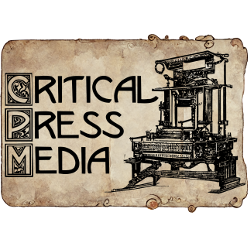Every story eventually comes to a conclusion, it’s the writer’s job to make sure that conclusion satisfies both the needs of the story and the desires of the reader. The story needs a conclusion that ties up all of the loose plot threads and ensures that every character has been through a complete arc. These technical details are important to the reader, but only at the basic level. The reader knows they are important to the story, but he is much less interested in the fact that the conclusion to every plot point and character arc exists than in how that point is concluded. The reader doesn’t just want a conclusion to the story; the reader wants a satisfying payoff.
What does a satisfying payoff look like? In its simplest format, the punishment must fit the crime. In primetime crime drama, the portion of the show that gives the procedural its weight comes from discovering information about the victim. The real crime in the story, as far as the reader is concerned, isn’t the actual law breaking – the details of which most readers have limited experience if any all. For the reader, the real crime is the frustration of the victim and those who care about the victim. These characters had hopes and dreams which the criminal stole from them in one way or another. While the resolution of the story may see the criminal brought to justice and the resources of the victim restored (if possible), the real payoff comes from making the criminal suffer in the same way as the victim.
Once again, the details of the suffering are not as important as the emotional effect of the suffering on the character. The physical action of the crime, even violent, intimate crime like murder and rape, is entirely secondary to the fact that the victim was rendered powerless, made to be subject to another’s incompassionate whim, and had their hopes and dreams destroyed. While it may be appropriate for the murderer to be killed, the death of the criminal means less than the removal of his power, the thwarting of his desires, and subjecting him to the power of the law.
More personal and less violent stories usually have less personal and more destructive antagonists. In a romantic drama, the heroine is often thwarted in her desire for a fulfilling life by the impersonal and utterly implacable hand of fate. There is no embodiment for the writer to punish. The heroine must simply overcome and endure. Even when the heroine’s will is thwarted by the (obviously unworthy) designs of a rival for the object of her affections, the reader is seldom interested in shooting the rival in the face as a means of reuniting the star-crossed lovers. The reader’s payoff doesn’t even always come from the heroine winning the love of her beau; romance stories aren’t actually about romance, they’re about fulfillment.
At the end of the romance story, the heroine has to do more than simply land her lover. The heroine must be happy with how things have turned out. Usually, this story ends with a baby and a “happily ever after”, but this is only one way to create fulfillment. One of the reasons that Romeo & Juliet works even though everyone dies (uh, spoiler alert for, you know, a 500 year-old play….) is not because the two lovers sacrifice their lives for the sake of love. The suicide pact is incidental to the play. The play works because in the wake of the lovers’ deaths, the two families put aside their differences to make peace. This denouement is the payoff for everything that Romeo and Juliet gave up in order to be together. It gives meaning and weight to their deaths. The love the two young people bore for each other finds fulfillment in the peace between the Montagues and Capulets.
At the end of the story, the reader doesn’t just want to know how things ended. The reader wants to be rewarded for investing his time in reading the story. The reader wants to know that the story meant something, that the moral right has been observed, and that the characters have had a fulfilling life. This is the payoff, and the writer needs to work towards this goal at every point in the story.
Last 5 posts by Winston Crutchfield
- Disney Kingdoms comics - July 7th, 2017
- Sonic the Hedgehog - June 19th, 2017
- He-Man / ThunderCats - June 5th, 2017
- Scooby Apocalypse - May 15th, 2017
- Wacky Raceland - May 1st, 2017
